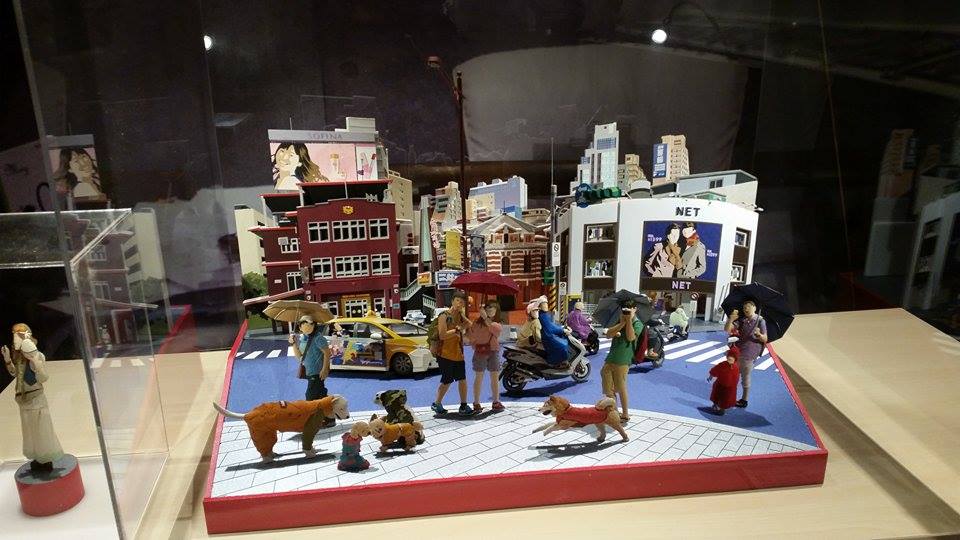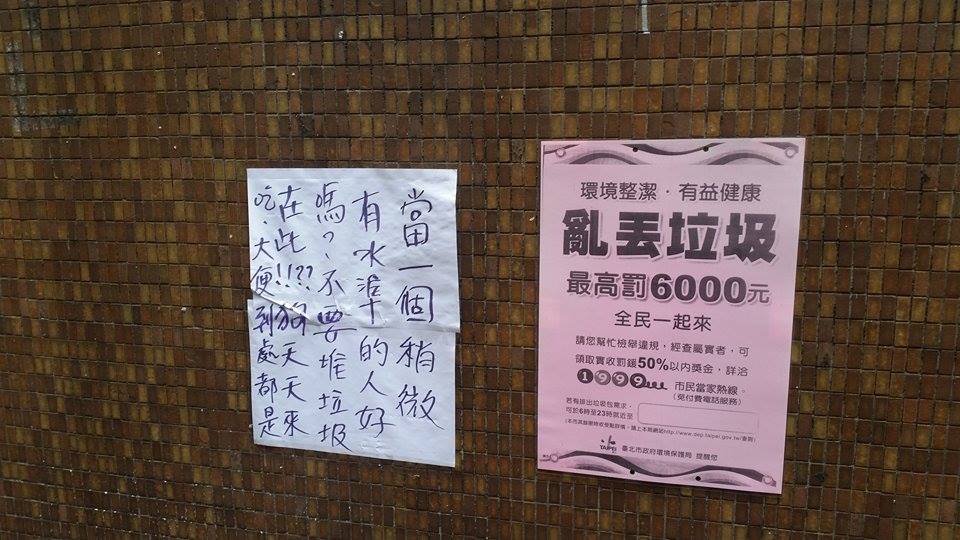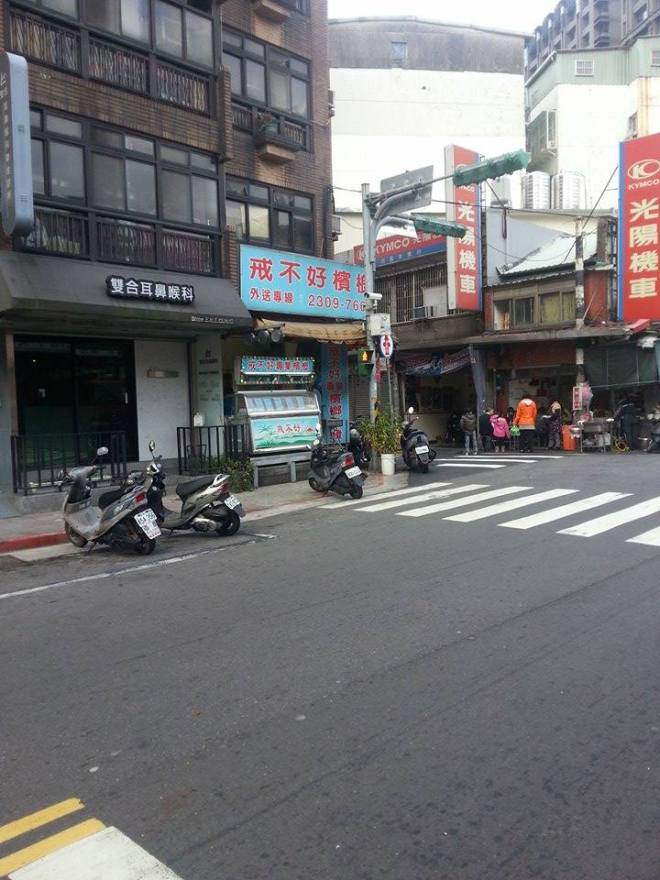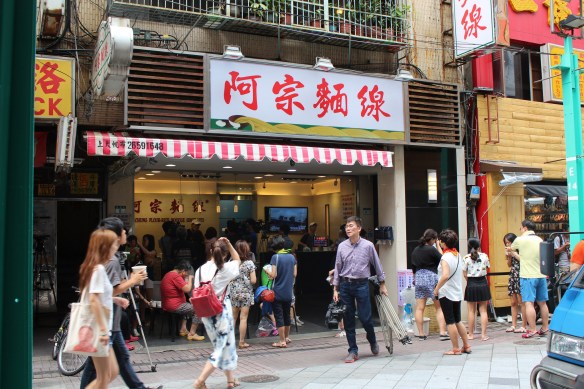
Photo credit: Chi-Hung Lin
Although not to everyone’s taste, this noodle shop is one of the most well-known in Taipei and you’ll have to line up in a quick-moving queue to get your order in. As i was waiting for my friend to get his order, I noticed these signs on the pillar that separates the store from its neighbour:
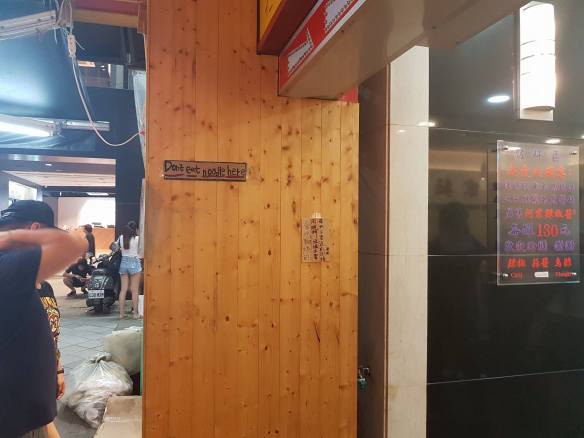
As well as the English-language sign on the left which states rather directly: “Don’t eat noodle here”, there’s a Chinese-language sign on the right. For those lacking super vision, here’s the enlarged version:
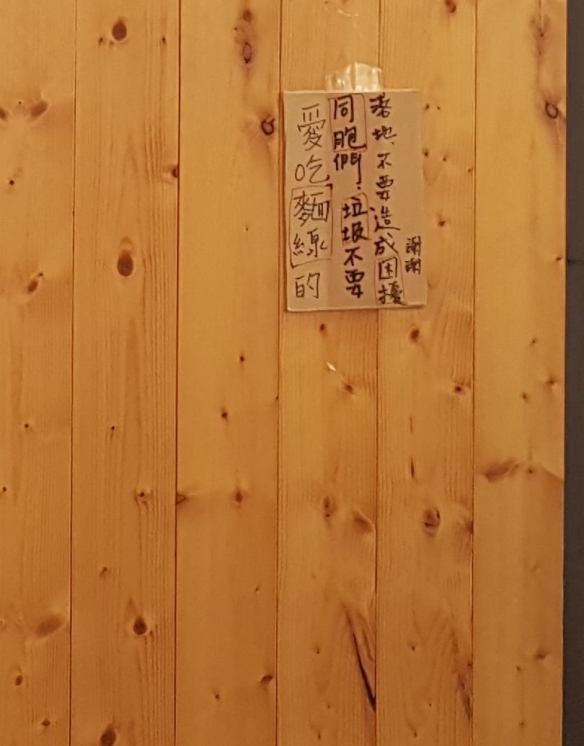
This sign reads as follows:
愛吃麵線的同胞們,垃圾不要落地,不要造成困擾,謝謝!
Compatriots who are fans of flour noodles, don’t let your rubbish fall on the ground. Don’t cause people problems, thanks!
Although the word 「同胞」 technically means simply “compatriots”, it is frequently used by people on both side of the Taiwan Strait to refer to the other side, more frequent when Chinese people refer to Taiwanese people.
For example, the permit (as their passports aren’t officially recognized) that Taiwanese people have to get to enter Mainland China are called 「台胞證」(Taiwan Compatriot Permit) a more casual way of referring to the 「台灣居民來往大陸通行證」 (Permit to allow residents of Taiwan freedom of passage to and from Mainland China).
In my mind this suggested that the sign was probably aimed primarily at Mainland Chinese tourists, many of whom visit the noodle shop while in Taipei.

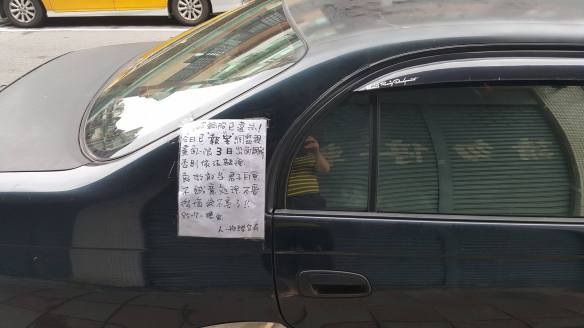
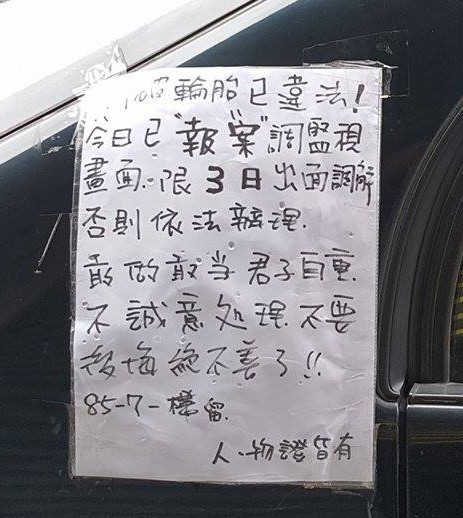
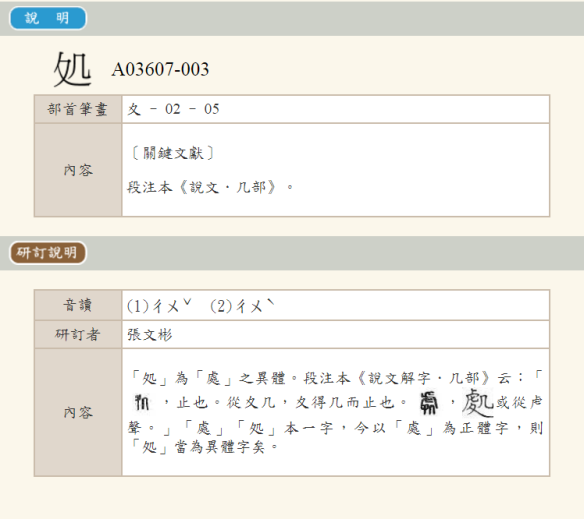





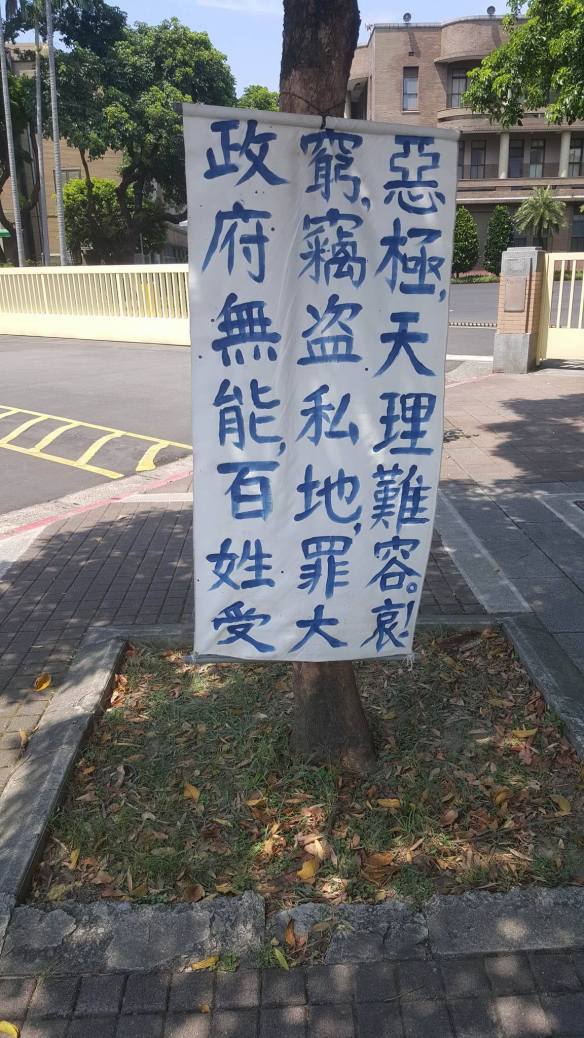
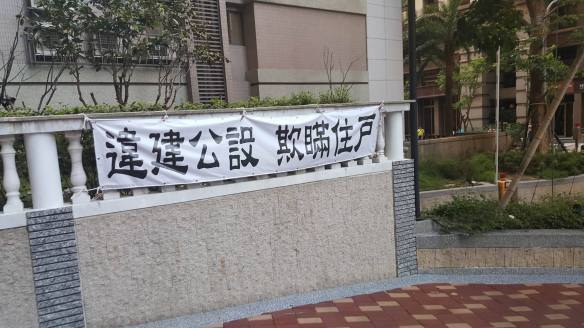

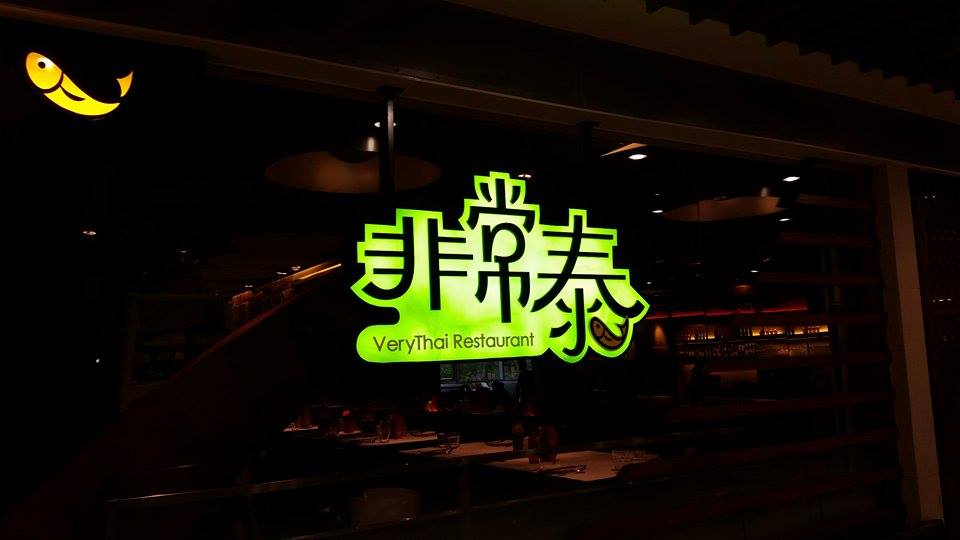
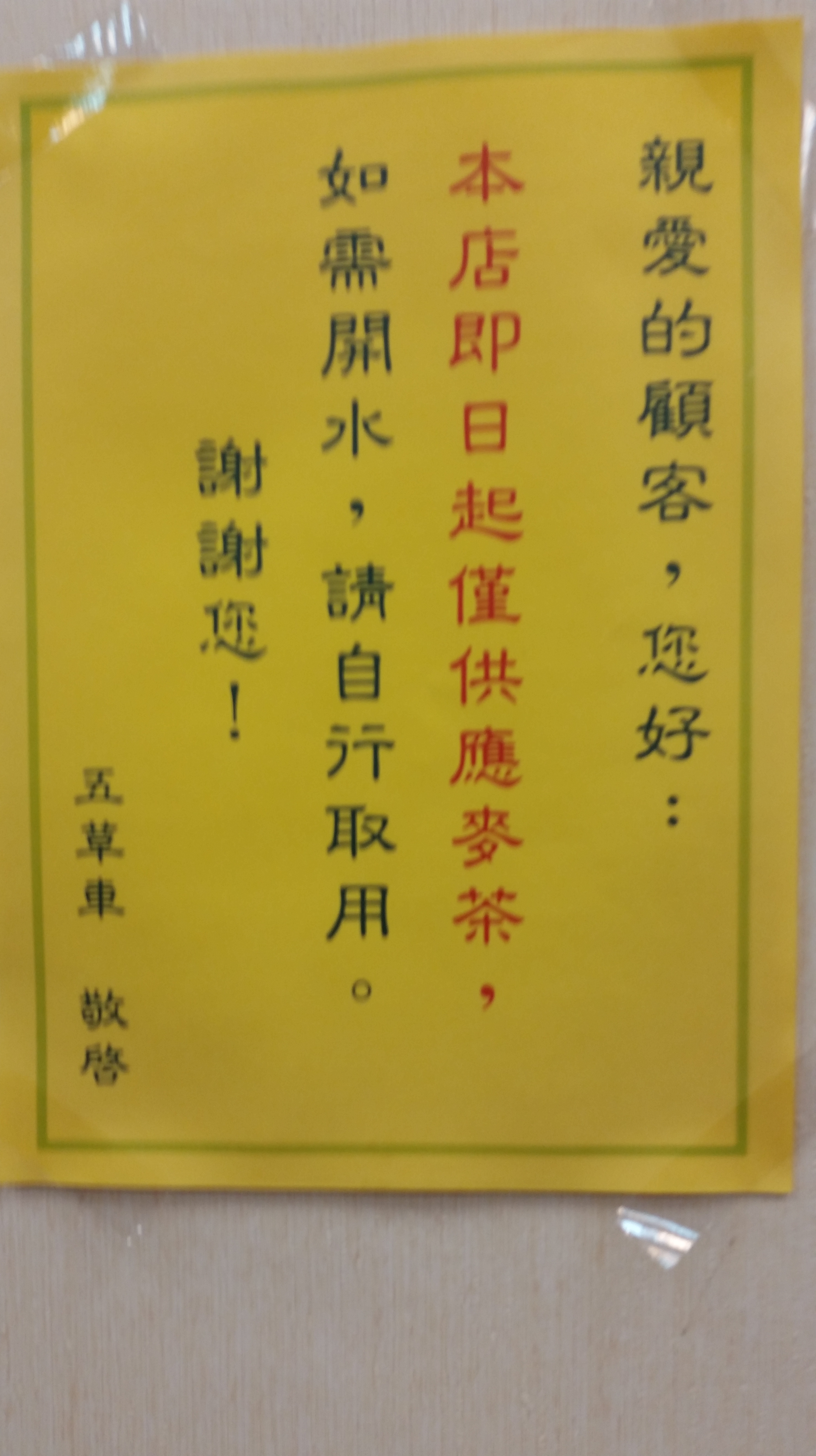
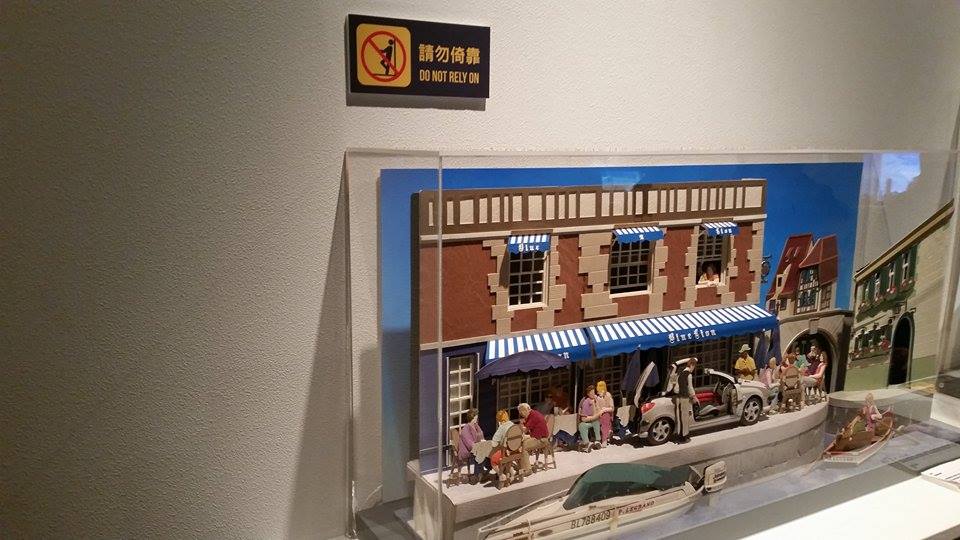
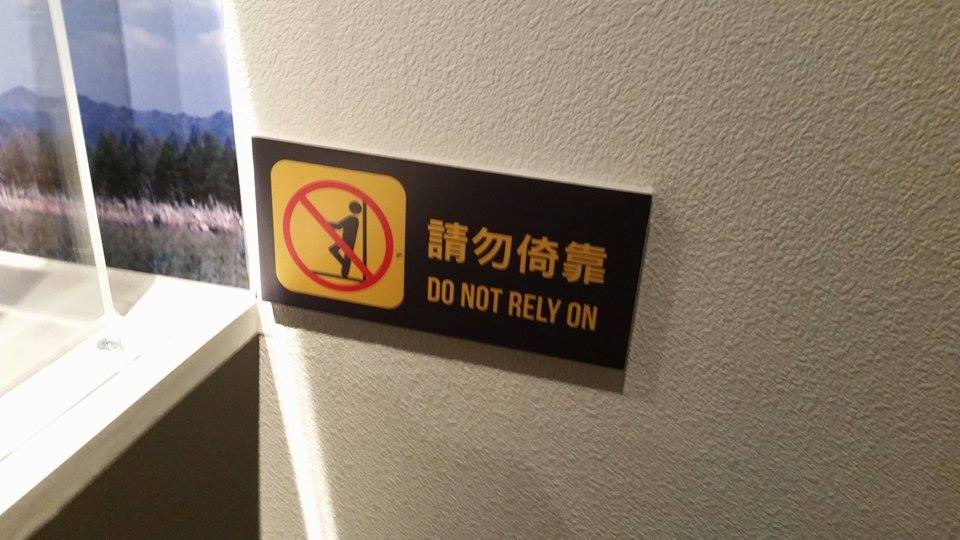 Although I’ve tired slightly of all but the most bizarre Chinglish signage, I thought this one was of note because it can be read as a covert injunction to aspiring paper artists everywhere – “Don’t rely on this kind of work, man.”
Although I’ve tired slightly of all but the most bizarre Chinglish signage, I thought this one was of note because it can be read as a covert injunction to aspiring paper artists everywhere – “Don’t rely on this kind of work, man.”